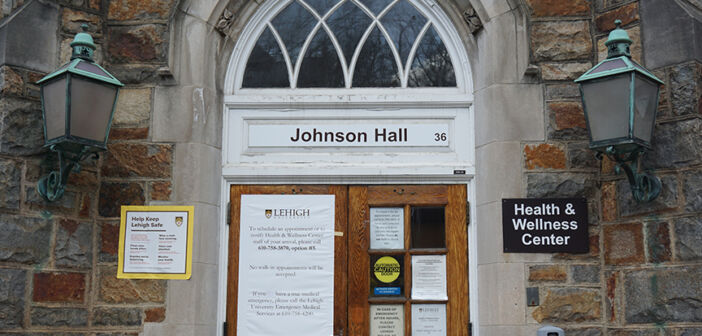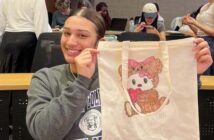Upon testing positive for COVID-19 during the second week of classes, Helen Flynn, ‘22, was faced with a problem. How was she going to keep up with her studies after missing eight days of classes due to her isolation?
Like Flynn, all students who test positive for COVID-19 at Lehigh are required to isolate. Now, since most classes are being held in person, students in isolation face the challenge of keeping up with their coursework while not being present in the classroom.
There is currently no university policy for faculty on how isolated or quarantined students should keep up with their coursework: that decision is left up to the individual faculty member.
Flynn said she was lucky that one of her classes was already structured to be taught in a hybrid model. For the other two, Flynn said her professors accommodated isolated students by setting up Zoom sessions to run during class, but she had difficulty following along.
She said one of her professors moves away from the camera when he teaches to a point where she cannot hear what is being said, while another screen shares the lecture slides during class, but does not show the work being done on the black board.
Flynn said Lehigh should have expected outbreaks to happen and students to have to miss class.
“Ten days is a long time to miss all of your college classes, you fall so far behind,” Flynn said. “I think recording the lectures is important, because if I can’t hear what (the professor is) saying, I don’t know what’s going on. They aren’t being recorded and posted like it was last semester. When we had our online classes, you could at least go back and try to piece it together.”
Flynn said even with the accommodations her professors have made, she is struggling to keep up with her courses. She said she is thankful her symptoms are mild and don’t interfere with her completing her work, but she cannot imagine what students with bad symptoms or no hybrid learning options are doing to stay on top of their work.
Edward Evenson, a professor in the department of earth and environmental sciences, said his approach to teaching this semester is to abide by whatever suggestions the university makes.
Evenson does not offer a remote learning component or post lecture recordings or slides. He said to accommodate students who must miss class, he will drop one of their four exam grades, each of which is based on a unit of content.
He said this is a policy he had in his classroom when courses were fully online and prior to the spring 2020 semester.
Evenson said this system will work fine as long as his students pursue it in good faith.
“If they’re really sick, they’re not only not in class, but they’re not following the lectures online,” Evenson said. “I just decided to do something that I thought was fair to the students, and that is to set up a situation where, if they contracted COVID or thought they had it, they would simply be fine. Most students won’t suffer anything. A few will have an extended absence, but because of my policy, that won’t hurt them at all.”
Dominic Packer, a professor in the department of psychology, said he anticipated active COVID-19 cases would still be an issue this semester, and structured his course to accommodate students who may become sick or have to miss class for any other reason.
For his class, he said he records the audio of his lectures, which he uploads after class along with the lecture slides. He also runs all of his assignments through Course Site so his students are able to complete their work on time from wherever they are. He said he has also built in flexibility so that his students can miss a certain number of assignments and set number quizzes without losing any points for any reason.
Packer made the call to shift his large class online when the university gave the option for instructors to shift to hybrid or remote learning for the week of Sept. 6.
He said making some kind of arrangements is imperative so that students may be responsible about both their health and education.
“If we want people to do the right thing, to quarantine or isolate, even if they suspect they might be sick but before they have a test result, I think it’s crucial that we make educational experience one that isn’t going to impede them doing the right thing,” Packer said. “I don’t want someone to come to my class, or any class, who suspects they’re sick simply because they are worried about the consequences of not coming to class. I think that’s undermining our entire effort to get through this pandemic as safely and as healthfully as possible and to protect each other.”
Packer said after a year of social distancing, he has found being back in person a rewarding experience, as he felt some of his joys of teaching were lost by being remote.
He said he knows people, himself included, are delighted and eager to have social interaction again, however, the Lehigh community has a responsibility to balance those desires with safety.






Comment policy
Comments posted to The Brown and White website are reviewed by a moderator before being approved. Incendiary speech or harassing language, including comments targeted at individuals, may be deemed unacceptable and not published. Spam and other soliciting will also be declined.
The Brown and White also reserves the right to not publish entirely anonymous comments.